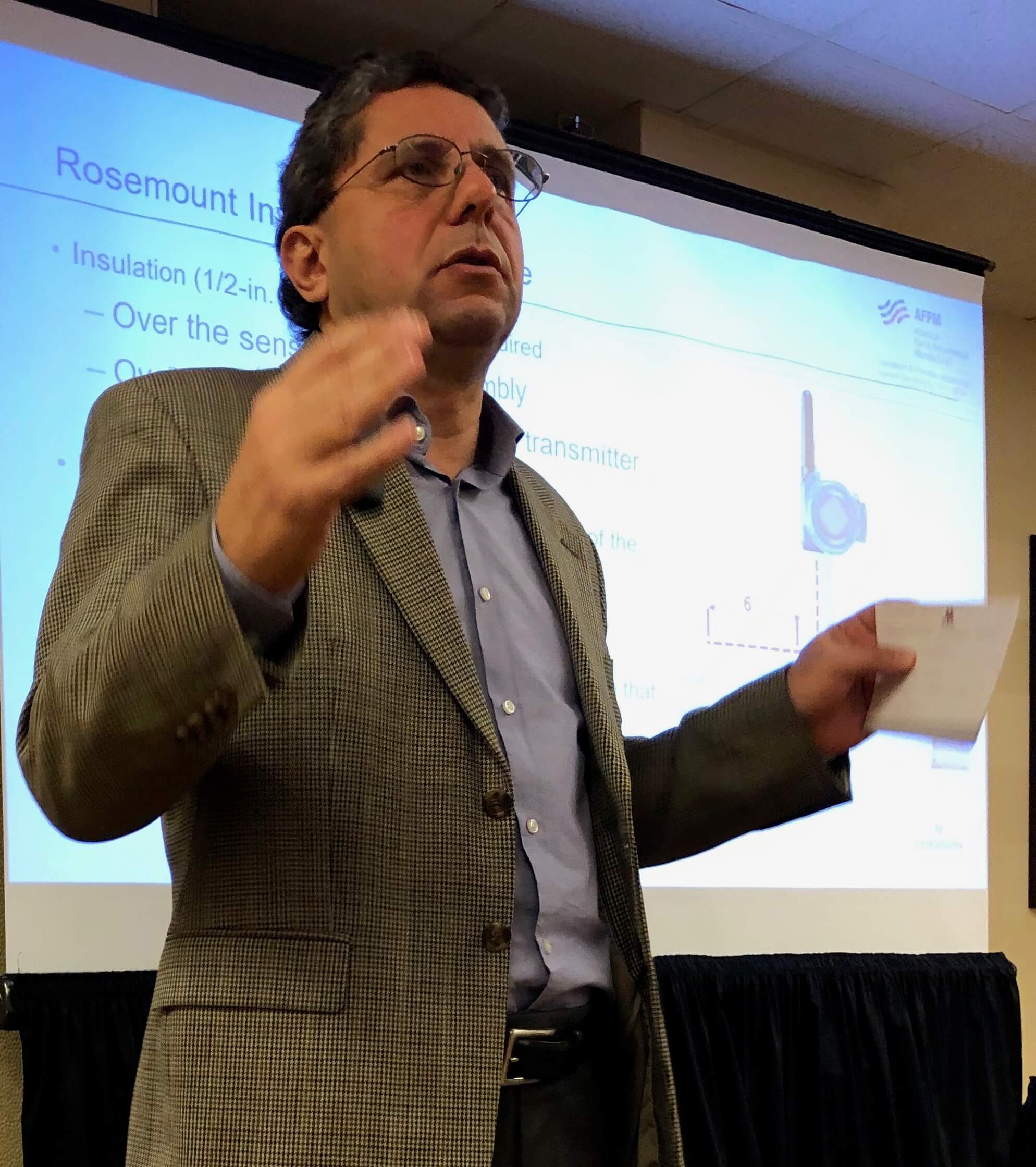 At the AFPM Operations & Process Technology Summit, Emerson’s Marcio Donnangelo teamed with a leader of a major refiner to present their experiences with cloud-based IIoT heat exchanger optimization and how it improved process performance.
At the AFPM Operations & Process Technology Summit, Emerson’s Marcio Donnangelo teamed with a leader of a major refiner to present their experiences with cloud-based IIoT heat exchanger optimization and how it improved process performance.
Today, maintenance on heat exchangers has been performed on a schedule every 1-5 years or during scheduled turnarounds. Technology has now enabled a better way—a predictive approach. Wireless temperature monitoring on both the primary and secondary inlet and outlets can help determine how much fouling has occurred. Manual rounds could miss big changes that have occurred between measurements.
Traditional ways to provide continuous temperature monitoring were to shut down the heat exchangers, install the thermowells and add temperature transmitters at the inlets and outlets. Not only is downtime to do this installation a concern, but also leaks may develop over time.
The solution presented was to use clamp on, non-intrusive, wireless transmitters. These Rosemount X-well transmitters measure the external pipe temperature. Calculations based on the temperature gradient from the pipe away from the pipe coupled with thermodynamic equations accurately estimate the internal fluid temperature.
This continuous temperature monitoring combined with analytics create a fouling factor based on the characteristics and performance of the heat exchanger. Marcio noted that this Industrial Internet of Things (IIoT) technology can provide additional sensing to solve problems in safety, reliability and efficiency beyond just basic process control.
Additional sensing technologies beyond basic process measurements, such as pressure, temperature, level, flow, etc. include corrosion, vibration, acoustic, and more as technology continues to advance.
For this heat exchanger monitoring application, the calculation ran once per day with the temperatures collected right at this time. This calculation and associated temperature measurements were trended and sent to the cloud-based analytics. The path is the wireless sensors to a wireless gateway/modem to a cellular network sent directly to a cloud-based IoT Hub. This path avoids any connection and cybersecurity concerns with the control system.
Operators need to get comfortable with the new technology. A great analogy is newer cars that tell you when to change the oil. This may occur at 7.5-8,000 miles. For those of us that always changed at 3,000 miles, it may take a while to trust these analytics, much like operators need time to trust the analytics from the stream of IIoT sensor data.
Marcio explained that data is not a rare commodity—expertise is. You need a strategy to get the data to analytics or subject matter experts to turn the data into actionable information. One way to do this is to have local experts analyzing the data on site. As experts retire and companies streamline their work force, expertise may be centralized either on-site or in an integrated operations center as a shared service to all the sites. Another approach is to rely on third party suppliers to provide the expertise as a connected service. The architecture of the IIoT-based data will change based on the approach taken.
To drive innovation and cost advantages it’s best to have collaborative supplier relationships that enable clear communications that drive technology advancements and solutions, which can be deployed on a larger scale.
Visit the AFPM Operations & Process Technology Summit section on Emerson.com for more on the technologies and solutions for refiners & petrochemical producers to drive improved business performance.
